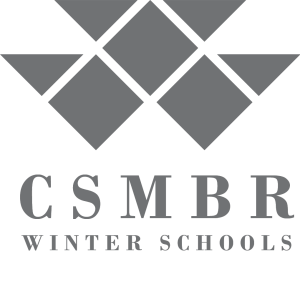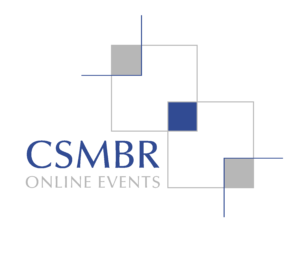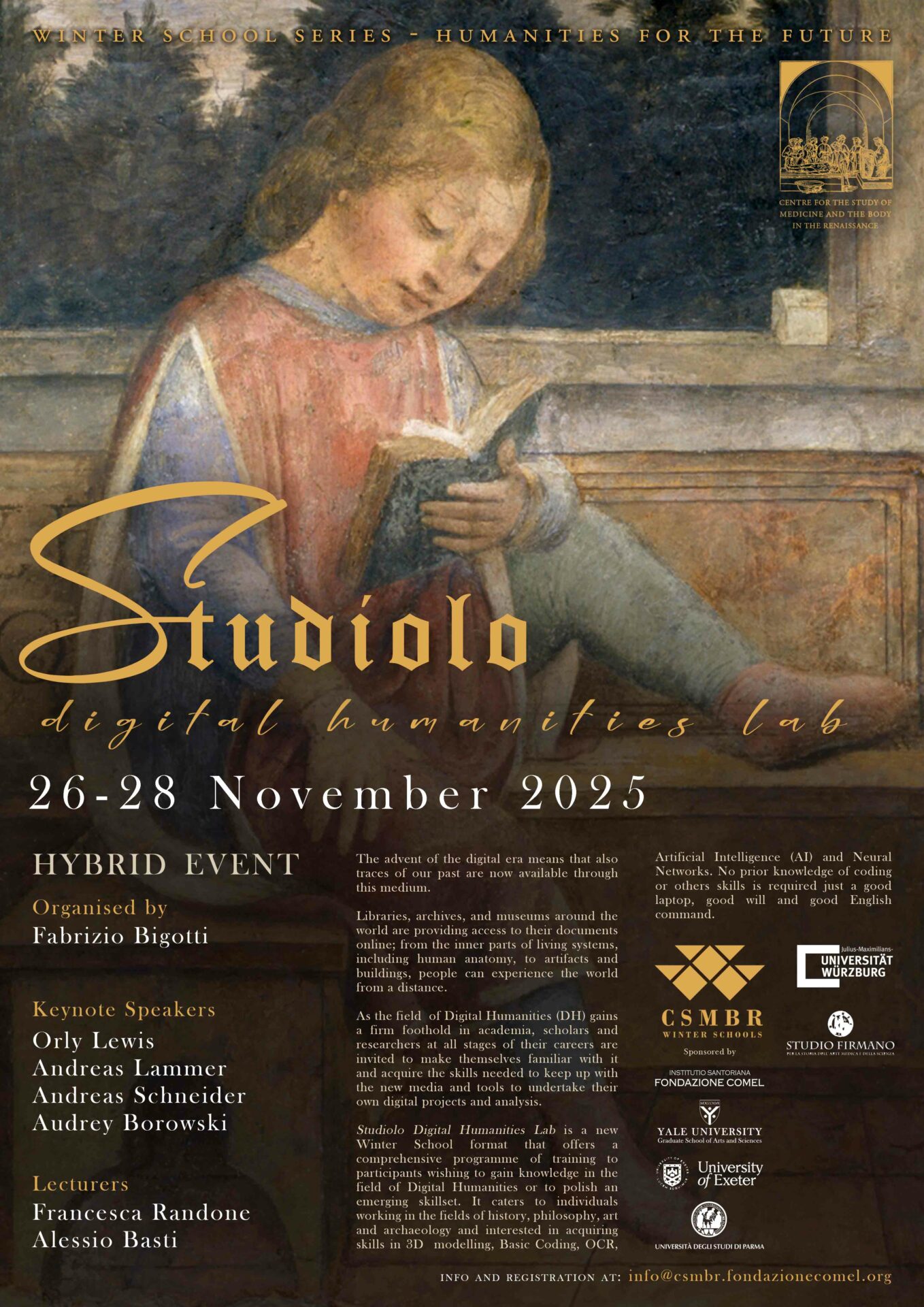Studiolo 2025


CSMBR Winter Schools: Humanities for the Future
Studiolo
Digital Humanities Lab
25-27 February 2026
Organised by
Fabrizio Bigotti
Keynote Speakers
Orly Lewis, Andreas Lammer, Andreas Schneider, Alessio Basti, Francesca Randone, Viktorya Vasilyan

Click to download the poster
Winter School Themes
![]()
Python Programming
![]()
3D Modelling
![]()
From Documents to Data
![]()
Natural Language Processing (NLP)
![]()
Working with Databases
![]()
Gamification
![]()
Foundational Concepts of Deep Learning
Workshops
![]()
Developing Interactive Presentations in the History of Science (O. Lewis)
Programme
Click to Download the Draft Programme
Abstracts
Forthcoming
Studiolo Digital Humanities Lab is a new Winter School format designed to meet the needs of those who, both inside and outside of academia, are faced with the digital revolution and want to make the most of it.
Its interdisciplinary format allows participants to get a feel for the potential of new media, while acquiring basic coding skills, knowledge of 3D modelling, Optical Character Recognition (OCR) and key concepts in Artificial Intelligence (AI) and Large Language Models (LLM), as well as tools for communicating with experts in the field.
Proficiency in Digital Humanities does not merely broaden one’s skillset; it fundamentally reshapes research, endowing it with greater depth and impact. Consider the capacity to unveil concealed patterns within historical datasets through sophisticated data analysis or the ability to reconstruct archaeological artifacts in three dimensions, yielding profound insights. These competencies not only elevate scholarly work but also facilitate the exploration of new avenues for funding and collaborative research.
A Comprehensive Programme
The programme will allow participants to interact with leading academics who have or are currently working as PIs in important digital humanities projects in the history of art, medicine, science, philosophy, as well as philology and archaeology. It is designed to offer a comprehensive skillset at the end of which participants will be familiar with the main features of the field and will have the tools to shape their own projects.
Beyond frontal lectures, participants will have the opportunity to connect with a network of international scholars in a variety of fields, including both emerging and established figures.
Emphasising the acquisition of practical skills, the Winter School requires no prior knowledge of coding or other skills. It caters to individuals from different backgrounds and career stages. Participants will be provided training by means of frontal lectures, Q&As, workshops and a series of exercises in breakout sessions.
- Basic coding skills in Python;
- An overview of the opportunities offered by data analysis;
- Database building;
- The potential of 3D Modelling in art and archaeology;
- An introduction to Machine Learning and Neural Networks;
- Insights into using AI to refine academic project writing;
- Knowledge of contemporary OCR systems, and training in how to use segmentation and text recognition;
- Analysis of case studies of some of the state-of-the-art projects in the field;
- Workshops focused on participants’ specific projects and needs.
By the end of the Winter School, participants will;
- Understand how to embed different digital media into humanistic research;
- Know the key terms of Digital Humanities and coding terminology;
- Familiarise themselves with the uses and applications of Artificial Intelligence;
- Be able to employ basic coding for data analysis and visualisation;
- Understand the applications of segmentation programmes;
- Get personalised feedback on their project ideas.
Organisation
The Winter School will be conducted over three days, from 10.00 am to 5.00 pm (CET) daily. Each day will be divided into two sessions, the morning session (10am-1pm) and the afternoon session (2-4pm).
The two sessions will alternately focus on developing coding skills and discussing current digital projects from a variety of disciplines. Group exercises in breakout sessions are also envisaged to implement the coding skills learned during the Winter School.
Participants are strongly invited to prepare their own presentation, best if based on current or future projects so as to interact with speakers proactively and get feedback and suggestions on how to further develop current proposals.
All sessions will be recorded and made available for later viewing.
There may be slight changes to the working schedule and number of lectures, but these will not impact the overall programme.

Dates: 25-27 February 2026
Format: Online
Regular Online: 22 February 2026
Queries
Registration Fees
Regular Registration
Online: € 270 (*Members € 216)
Check Out
Credits
Scientific Direction:
Fabrizio Bigotti
General Coordination:
Tomaso M. Pedrotti Dell’Acqua
Samuele Filippi








